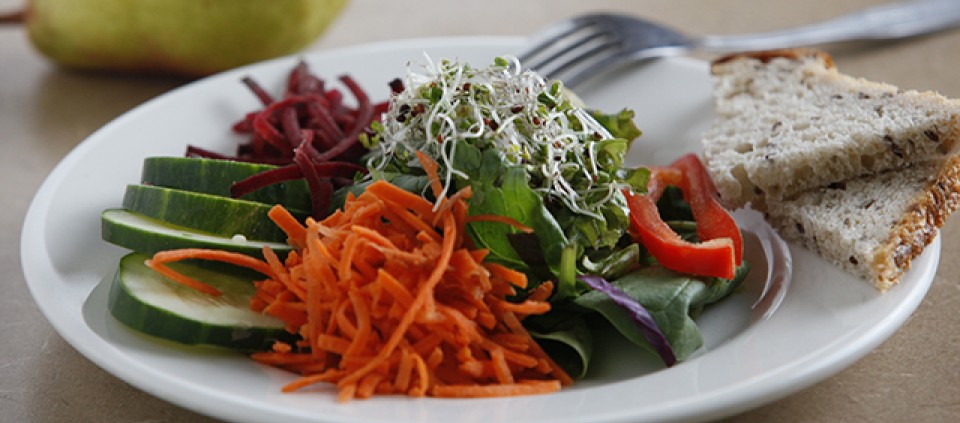The Food-Mood Connection

Does what you eat affect how you feel? Well, yes!
As a nutritionist who, for more than two decades, has observed the degree and depth to which this connection makes itself clear—for those I work with every day, and in my own body—it’s obvious: What you eat impacts how you feel on the physical, energetic, emotional, and mental levels.
Our bodies—our internal environments—are created by what we choose to put into our mouths. We can create internal environments that support preventive health and optimal lives, that help us more skillfully navigate our complex day-to-day existence. Or we can create internal environments that set us up to experience chronic illness, less-than-optimal energy levels, fuzzy thinking, and poor or compulsive choices.
The biggest issue as far as the food-mood connection is the degree to which we think of treats made with refined ingredients as innocuous. If we have an occasional dessert, especially if shared with those we love, it’s a beautiful thing, and I offer blessings for your deepest enjoyment. But when diet soda becomes a daily habit, and we rely on candy bars or cookies (with coffee, of course) to get us through the afternoon slump, then sweets are no longer our friend. (A tip: Try pranayama or a short yoga nidra instead of that afternoon sugar fix.)
Choose more food made by hand with love, instead of food made by machines. When I hear that 70% of the foods we eat are refined, my heart breaks for all of us. In that environment, it’s nearly impossible to maintain the whole-foods diet that supports clear and expansive moods and helps us fulfill our life mission—in part, because the more refined food we eat, the more we want.
Refined (also known as processed) foods are those that are prepared and packaged in order to make it easier for you to get meals on the table quickly and easily. Refined foods include anything that comes in a box or package, including bread, breakfast cereals, canned and prepared soups, and frozen dinners, as well as snack foods.
There’s a nutritional price to pay for food convenience: The more that’s done to a food, the less it offers as far as fiber (which feed the digestive tract and fills you up) and nutrients (vitamins, minerals, and phytonutrients). At the same time, it has a higher chemical load (preservatives, artificial colors, and other additives). You can think of these ingredients as triggering a stress response, because basically the body does not recognize them as food. The immune system swings into action, causing inflammation, which is associated with cognitive decline and a variety of other conditions that you can do without.
Know who you are physically. If you’re working with depression or other mental-health conditions, or symptoms such as cravings or fuzzy thinking, I encourage you to begin a self-inquiry into how what you eat makes you feel. If this sounds daunting to attempt on your own, you might want to consider a session with one of our licensed nutritionists here at Kripalu, who can guide you in an inquiry designed with your personal needs and preferences in mind.
Mental symptoms are often clues to an internal imbalance, such as too much inflammation, food sensitivities, gut imbalances, or overconsumptive malnutrition (too many calories and too few nutrients). The internal imbalances you may have, as well as your genetic inheritance and medical history, will point you to the way of eating that is likely to be most supportive for you. There are also a wide variety of botanicals that can be allies in cognitive health; work with your nutritionist to find those that are best for you to try.
Work with a qualified healing guide. Mood and cognitive issues are an area where the Western medical system can be lacking. You might consider working with a trained Ayurvedic practitioner (Ayurveda is a terrific integrative approach to mental health) or a nutritionist. We have integrative dietitians and licensed nutritionists on staff who are experts at weaving together Eastern and Western approaches.
Remember that food dances intimately with many areas of our lives, from how we respond to stress to how we show up in our relationships. May you eat well and prosper!
Find out about upcoming programs with Annie B. Kay at Kripalu.
© Kripalu Center for Yoga & Health. All rights reserved. To request permission to reprint, please e-mail editor@kripalu.org.
Annie B. Kay, MS, RDN, E-RYT 500, C-IAYT, is an author, nutritionist, Kripalu faculty member, and important voice in whole-foods nutrition and yoga.
Full Bio and Programs